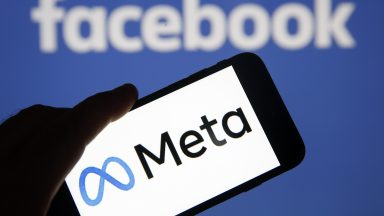
In the ever-evolving world of technology, staying updated is crucial, particularly when it comes to social media policies and misinformation management. Meta?s recent update regarding its fact-checking processes raises significant questions about how online content regulation will change, especially concerning issues of non-partisanship. Below, we delve into how these changes may impact the way social media platforms function and how users will interact with content moving forward.
Understanding the Functionality of Meta?s Previous Fact-Checking System
Launched in 2016, Meta?s fact-checking program aimed to combat the surge of misinformation prevalent on its platform, particularly during the contentious U.S. presidential election of that year. In response to widespread criticism from users about the proliferation of fake news, Meta established a framework where certified, non-partisan third-party organizations, recognized by the International Fact-Checking Network (IFCN), would verify the accuracy of information. This initiative included a structured rating system categorizing content as ?False, Altered, Partly false, Missing context, Satire, and True.? By 2023, this system had significantly broadened, incorporating nearly 100 organizations operating in over 60 languages worldwide, as noted by Meta?s Transparency Center.
What You Need to Know About the Meta Fact-Checking Update
On January 7, 2025, Meta’s CEO Mark Zuckerberg made a significant announcement via a video shared on Meta?s official platform regarding the termination of its traditional fact-checking system. Instead, he introduced a new initiative called ?Community Notes,? which emphasizes user-generated content moderation. This shift mirrors the approach adopted by Elon Musk on his platform X, highlighting a growing trend towards community involvement in managing social media content. Zuckerberg?s pivot marks a transformative step in how online misinformation will be addressed moving forward.
Meta said it?s scrapping its third-party fact-checking program and replacing it with community notes written by users similar to the model used by Elon Musk?s X. Here’s what to know. pic.twitter.com/iPfkqc1lWP
? The Associated Press (@AP) January 7, 2025
Exploring the Reasons Behind Meta’s Shift in Fact-Checking Strategy
Mark Zuckerberg articulated the rationale for this significant policy shift, particularly in light of the upcoming 2024 U.S. presidential election. In his video, he expressed concerns about the cultural implications of prioritizing free speech in the current political landscape. He reflected on the media’s portrayal of misinformation as a threat to democracy since Donald Trump’s election in 2016. Zuckerberg emphasized that despite their best efforts to mitigate misinformation, the fact-checkers have often appeared politically biased, undermining user trust rather than fostering it, especially within the U.S. context.
Anticipating Changes in User Interactions on Facebook and Instagram
With these new adjustments, both Facebook and Instagram are poised to facilitate the sharing of a broader range of content on contentious topics such as gender and immigration. This revamped framework will encourage users to actively participate as content contributors, enabling them to rate posts, seek further clarification, and flag misleading information. To mitigate bias, the new system requires that users with varying perspectives collaboratively agree on content ratings, fostering a more inclusive community approach to information dissemination.






